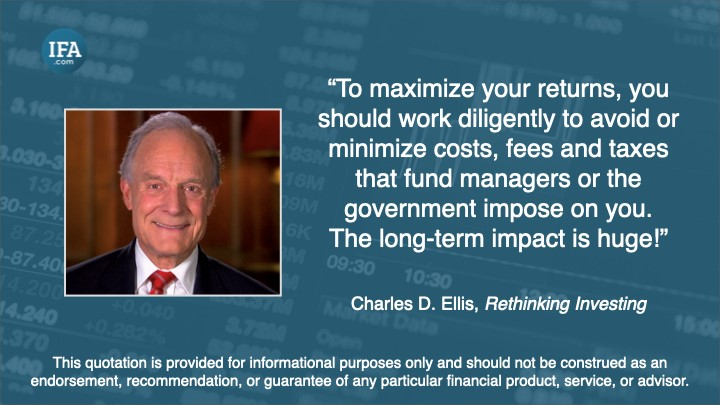Much as we would like to identify, in advance, the funds that are going to produce the best returns, it is exceedingly hard to do in practice. Sure, you might just be lucky enough to pick one of the big winners of the future. But you could just as easily pick a total bust and end up losing money.
But let's say you did want to give it a try. What metrics would you use to choose between different funds?
Most people in this situation focus on past performance. Indeed, we're encouraged by the financial media to do so. The money pages are full of examples of funds with impressive recent returns which seem like a sensible bet.
Success Is Hard to Reproduce
The problem is, research suggests that a majority of active fund managers struggle to replicate their past successes over time. Often, they earn "star" status off the back of just one or two years of outperforming their benchmarks, or, to use the technical term, delivering alpha. In some cases, their reputation rests on just one month of extraordinary returns.
In Step 5 of his book Index Funds: The 12-Step Recovery Program for Active Investors, Mark Hebner uses the analogy of movie sequels to explain just how unusual it is to for managers who have hit the jackpot to do so again.
"Men in Black II, Ocean's Twelve and The Hangover, Part II," he writes. "All of these movies have one thing in common: they were abysmal sequels to blockbuster movies. We long to regenerate scenarios when everything comes together perfectly and the stars align, but that kind of success is rarely duplicated.
"As hard as it is to (do) in the film world, it is even more difficult for these all-star money managers to duplicate their past success."
Past performance, in other words, tells us very little, if anything, of value about future performance.
The Most Reliable Predictor Is Cost
In 2016, Russel Kinnel, Director of Mutual Fund Research at Morningstar published a landmark study which found, of all the variables he tested, expense ratios did the best job of predicting funds' subsequent returns. Simply put, funds with lower fees tended to be, on average, to perform versus peers over subsequent periods.
But has that held true over the nine-year period since then? Morningstar's Chief Ratings Officer Jeffrey Ptak has recently studied the numbers for both stock and bond funds for the 20-year period to the end of January 2025, and the answer is an unequivocal Yes.
Ptak categorized funds based on their expense ratios at various points over the period, from the cheapest to the priciest. He then analyzed the subsequent net-of-fee returns for each group.
What he found bolstered Kinnel's findings in 2016. He writes: "Not only did cheaper funds outperform, on average, the sort from low-cost to high-cost followed an almost perfect stair-step pattern. That pattern held when I measured stock and bond funds separately.
"Moreover, the cheapest funds subsequently outperformed the priciest funds, on average, in every single year that spanned the study."
Ptak says the key takeaway for investors is obvious: "Investors choosing funds should start with fees, favoring those that levy lower expense ratios than peers.
"Russel Kinnel's research made that clear, and these more recent findings seem only to reinforce the case he originally made to pinch pennies." It is important to note that while these findings suggest trends, individual fund performance may vary, and past results cannot fully predict future outcomes.
Index Funds Tend to Have Lower Costs
This is one of the reasons why IFA recommends using index funds, not actively managed funds. Active funds are more expensive than both traditional index funds and the non-traditional variety which we particularly favor, and the difference in annual management fees can be very considerable.
Remember, too, that the headline fee is only part of what the investor pays. In Step 7 of his book, Mark Hebner provides a list of what he calls "silent partners" investors in active funds pay money to. These include stockbrokers, investment advisors, accountants, market makers, transfer agents, mutual fund distributors, and income tax agencies.
"Your investment portfolio is vulnerable to these silent partners," writes Hebner. "Ideally, a silent partner would provide some sort of benefit, but in many cases, these silent partners add little value."
Unlike active funds, index funds keep trading to a minimum, which substantially reduces your costs. On top of that, index funds also tend to be more tax efficient. Although index funds tend to have lower costs overall, investors should review fees and fund structures carefully to assess alignment with their goals.

Time For A Rethink?
The veteran investment consultant and best-selling author Charles Ellis was one of the first people, in the 1970s, to point out that net of costs, very few active managers outperform index funds. Now 87, Ellis has just published a new book, Rethinking Investing, in which he says he is more certain than he has ever been that your best interests are served by investing in index funds.
"The average investor committed to active investment management," Ellis writes, "can lose as much as 2-3% in return per annum through a combination of costs charged by active managers and extra taxes, plus the self-imposed injuries by their (own behavior).
"Over the very long-term, that slippage can compound to evaporate a third or more of what might have been the investors' final assets.
"To maximize your returns, you should attack in the opposite direction and work diligently to avoid or minimize costs, fees and taxes that fund managers or the government impose on you. The long-term impact is huge!"
Robin Powell is the Creative Director at Index Fund Advisors (IFA). He is also a financial journalist and the editor of The Evidence-Based Investor. This article reflects IFA's investment philosophy and is intended for informational purposes only.
This article discusses comparative cost and performance advantages associated with index funds over actively-managed funds. It should be noted that while index funds are generally designed to reduce costs and improve tax efficiency, unique circumstances may affect an investor's suitability or results.. Readers should consult a qualified advisor before making investment decisions. No investment approach, including strategies employing index funds or emphasizing cost management, guarantees success. This article is intended for informational purposes only and reflects the perspective of Index Fund Advisors (IFA), with which the author is affiliated. It should not be interpreted as an offer, solicitation, recommendation, or endorsement of any specific security, product, or service. Readers are encouraged to consult with a qualified Investment Advisor for personalized guidance. Please note that there are no guarantees that any investment strategies will be successful, and all investing involves risks, including the potential loss of principal. Quotes and images included are for illustrative purposes only and should not be considered as endorsements, recommendations, or guarantees of any particular financial product, service, or advisor. IFA does not endorse or guarantee the accuracy of third-party content. For additional information about Index Fund Advisors, Inc., please review our brochure at https://www.adviserinfo.sec.gov/ or visit our website at www.ifa.com.














